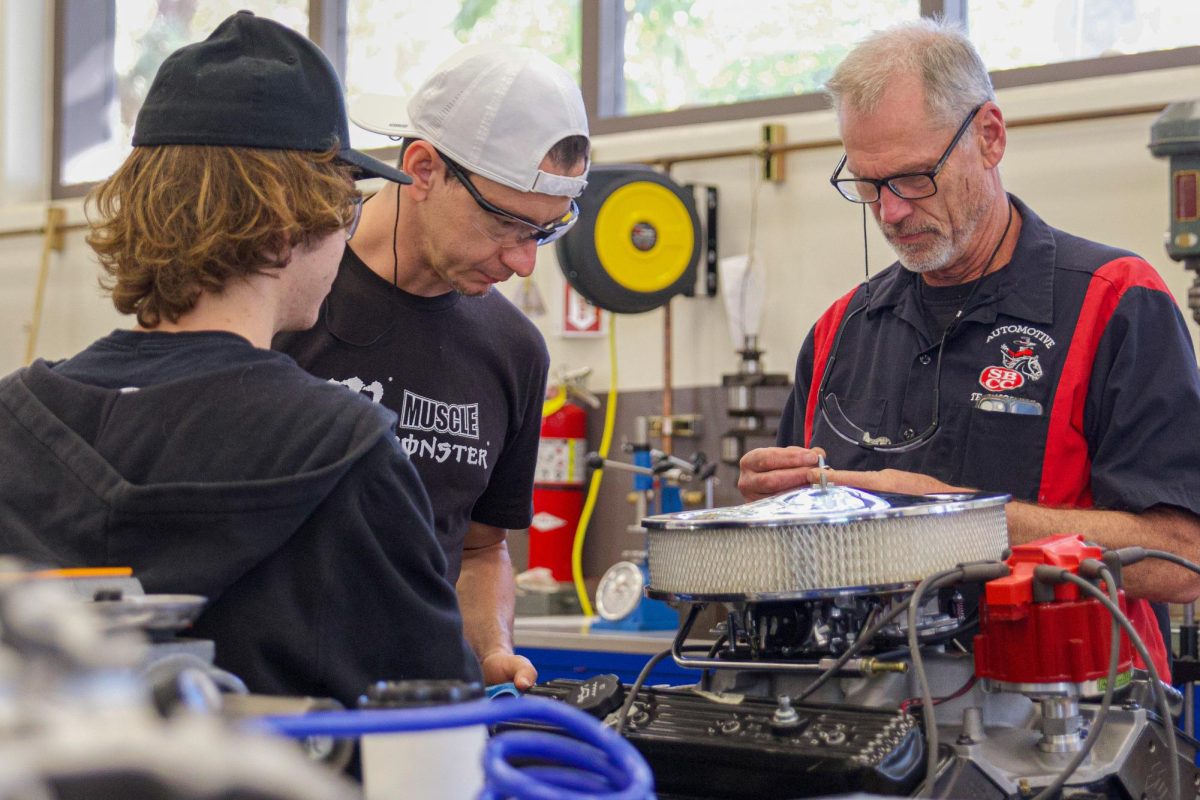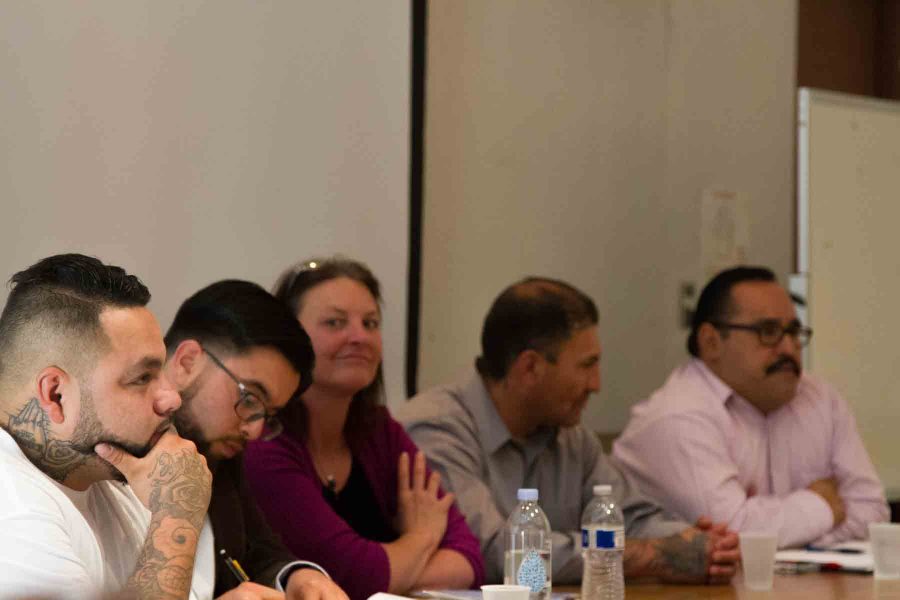A book worth taking a second look at is one that can tell an untold story of immigration, open possibilities for a renewed outlook on femininity and make one question the physical and nonphysical borders in human life.
SBCC Reads held its 10th annual book panel 3 p.m. Wednesday in the Luria Library where the book ‘‘Into the Beautiful North’’ by Luis Alberto Urrea was discussed. The panel, which was originally scheduled for March 22, was rescheduled due to the school closing as the result of a power outage.
The event was hosted by the Luria Library, Student Equity Committee, and Extended Opportunity Programs and Services.
Panelists included professor Clara Oropeza, English professor and coordinator of Multicultural English Transfer Program, Melinda Gandara, American ethnic studies instructor, and psychology major Juan Perez Vazquez. Each panelist offered his or her own perspective and choice of focus from the book, making the panel a three-dimensional outlook on the novel.
Gandara argued that there are both physical and nonphysical borders in everyone’s lives that hinder them from reaching their goals, something that plays an important theme in the book’s plot. Audience members participated in this discussion and shared their own experiences with what borders they had recently crossed.
“What I see here is the ability to have a dream, and to not let a border stop you,” Gandara said.
Parallels were drawn to the protagonist of the book, Nayeli, and the different borders crossed throughout the story, such as the mental preparation to make her journey from her hometown, Tres Camarones in Sinaloa, Mexico, towards the United States.
There is an appreciable change going on in the town where the story is told. With all the men having left for a better life in America, a town ruled by women allows for a new definition of femininity to be formed.
“Every time there is a possibility for change, there is a possibility for transformation,” Oropeza said.
The panel went on to discuss how culture plays an important role in what is defined as femininity, and how the book compares a society where there are no men to a society, where there are, and what may change due to this.
Perez focused on how the book can help readers see another story of immigrants than the one portrayed in popular media. He believes the book can be a gateway to eliminate biases and prejudice towards the people that arrive into America searching for a better life.
“Why is it right to call a human being illegal?” Perez said. “Being a person is not illegal.”
When he was asked what else can be done to spread the story of immigrants to change the prejudices that currently exist in many parts of our society, Perez encouraged listening and paying attention.
“We don’t have the chance to tell you our part of the story,” Perez said.
With three different eyes looking in three different angles at the same novel, the event offered interesting discussion and allowed readers to develop ideas about the book that may not have been apparent before.











